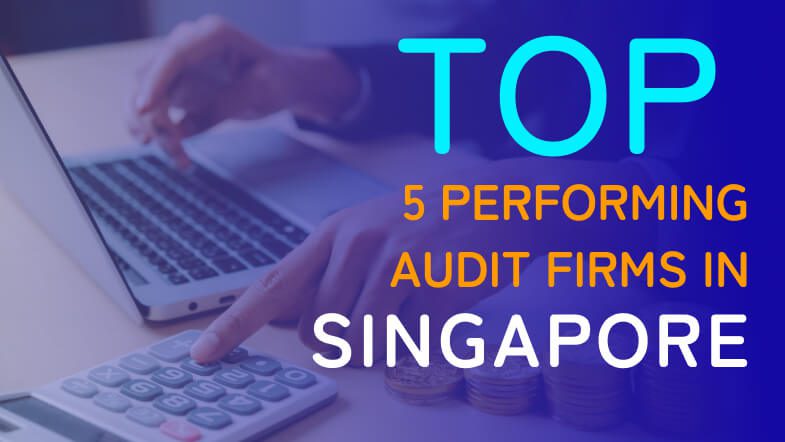
Every business entity in Singapore and across the world is required by law to pay taxes. Every nation has a tax system that regulates how commodities and services are bought and sold.
The primary tax authority responsible for administering, evaluating, gathering, reporting, and enforcing the payment of GST returns in Singapore is the Inland Revenue Authority of Singapore (IRAS).
The Goods and Services Tax Act, which serves as the official Singapore VAT, went into effect in Singapore on April 1, 1994. With a few exceptions, all types of products and services will henceforth be subject to the same basic tax rates under the Goods and Services Tax.
The government implemented a single tax system that applied to all goods rather than managing several tax rates. Additionally, Singapore’s implementation of the GST made it possible for both individuals and corporations to pay lesser income taxes.
You merely need to get in touch with us right away if you want to handle GST filing Singapore while making sure your facts are pertinent and your information is accurate. WZ WU & Partners can assist you in handling the procedure much more easily by examining all of the potential methods that your company may qualify for GST.
Why Singapore GST is Changing?
To maintain robust and resilient financial standing, the Singaporean government is raising the GST rate. As a result, the government will have more money to pay for public initiatives like infrastructure and healthcare, which account for the majority of government spending.
The increased funds generated by this tax are also anticipated to support programs intended to support firms in remaining competitive in a difficult economic environment. The rate hike is also anticipated to aid Singapore in reducing its budget deficit and maintaining its sustainable economic trajectory.
Making this rate adjustment now will also give companies enough time to get ready for any future changes that could occur. By doing this, you may ensure that operational interruptions and poor customer service are kept to a minimum.
Consumers would eventually profit from this hike since it will keep Singapore competitive and appealing to investors, creating more employment opportunities. In turn, this will aid in raising salaries and raising everyone’s level of living. It is anticipated that the initiatives funded by the increased tax income would help people, families, and communities across the nation. These include housing programs, healthcare assistance, and financial aid for schooling.
Is Singapore GST Changing in 2023?
Singapore is making changes to how it manages the GST (goods and services tax) collection on low-value imports. GST will be due on all products starting on January 1, 2023, regardless of their value. The existing GST rate will increase from 7% to 8% concurrently.
The new regulations will affect you if your company makes low-value and business-to-consumer (B2C) items to Singapore.
Businesses should Take into Account the Following Concerns and Effects
- Any temporary time of supply regulations to guarantee that GST is computed at the appropriate rate. This will probably occur after the date of the tax invoice, but the IRAS’s regulations and guidelines will confirm this.
- Think about how pricing will be affected, natural price points, and if the increased GST will be passed on to customers.
- Changing rates in billing systems, e-commerce platforms, ERP or accounting software, and EPOS systems, among other necessary system adjustments. The rate change should be automated but should be evaluated if the company utilizes a tax engine to automate tax determination.
- Educating all relevant parties on the change, its effects on them, and procedures that are GST sensitive. This includes customers, suppliers, and staff.
Tax Filing Rules in Singapore
On taxable income from Singapore or foreign money sent into Singapore, all businesses are required to pay corporation tax.
See some important Singapore goods and services tax (GST) information that you should be aware of for businesses with yearly revenue of more than SSGD1 million. These businesses are also required to pay GST in the form of Goods and Services Tax (GST).
The filing price is expected to be more than SGD400, while the GST registration charge is between SGD300 and SGD400. Based on the financial report and the company’s transaction volume, which is typically above SGD600, the tax year will be estimated.
In Singapore, unless the firm is exempt from audit requirements, all corporations must employ audit services within 3 months of its incorporation.
The starting price for statutory audit services in Singapore is typically SSGD3K/audit. The charge could go up based on how big and complicated the company’s financial statements are.
All Singapore-incorporated firms, Variable Capital Companies (VCCs), and Limited Partnerships (LLPs) are obliged to make yearly lodgments with ACRA, including annual returns and annual declarations, within a certain time frame under the laws managed by ACRA.
Companies, VCCs, and LLPs will be subject to a late filing penalty if their annual reports and annual declarations are submitted after the deadline.
You can never fully understand the issues you confront as a business owner without an audit. However, we can assist you in overcoming them and putting in place a clear plan of action that will make your company perform significantly better over time.
Contact us now for further advice and information so that you can start making more decisions that will improve your company. Just let us know where the problems are, and we’ll be there to implement a fix that ends the issue.




